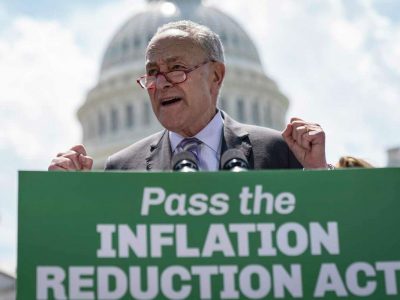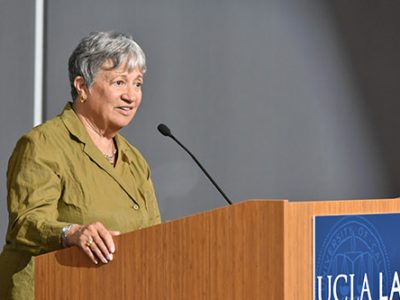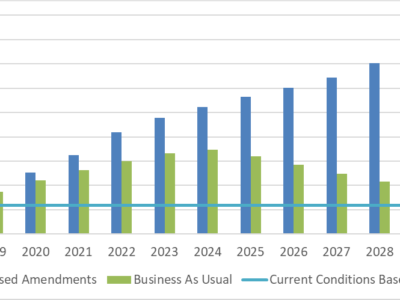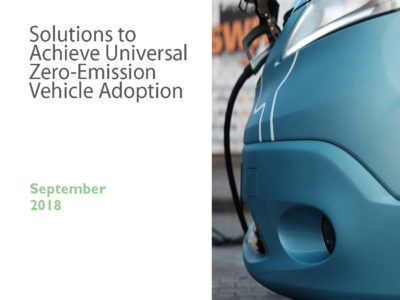zero emission vehicles
Supply-Side Regulations & Clean Vehicles
As Congress votes to undermine California’s sovereignty to set supply-side standards on polluting vehicles, CLEE’s research shows why these policies are so effective
In May 2025, both the U.S. House and Senate passed resolutions to revoke California’s Clean Air Act waivers, which allow the state to enforce stricter vehicle emissions rules than federal standards (see Ann Carlson’s post on this issue). If signed by the President—and if successful in the face of court challenges to their dubious legality—these …
Continue reading “Supply-Side Regulations & Clean Vehicles”
CONTINUE READINGAccelerating Freight Decarbonization
A Guide to Zero-Emission Zones in Cities
The Transport Decarbonisation Alliance (TDA) is a collaboration among countries, cities, regions and companies with the goal of accelerating the global transformation of the transport sector towards a net-zero emission mobility system by 2050. CLEE is actively supporting California Air Resources Board (CARB) with its TDA presidency through research and strategic coordination. Together with various …
Continue reading “Accelerating Freight Decarbonization”
CONTINUE READINGDoes the New Climate Law Expand Regulatory Authority?
It’s not the game changer some people think, but IRA could help in several ways.
There’s been a lot of recent talk about whether the Inflation Reduction Act (IRA) indirectly overrides West Virginia v. EPA. The answer to that is probably “no.” However, some IRA provisions will help lawyers defend certain regulatory actions. IRA may also have an important framing effect when courts are considering the reasonableness of agency actions. …
Continue reading “Does the New Climate Law Expand Regulatory Authority?”
CONTINUE READINGMary Nichols’ new role at the Emmett Institute
This post is co-authored by Daniel Melling, communications manager at the Emmett Institute The New York Times reported last week that the Biden administration is preparing to restore California’s waiver to set greenhouse gas auto emissions standards stricter than the federal government’s rules. It’s the latest episode in a regulatory saga stretching back to the …
Continue reading “Mary Nichols’ new role at the Emmett Institute”
CONTINUE READINGU.S. Supreme Court Declines to Revive Challenge to Oregon Clean Fuels Program
Legal Challenges to Oregon & California Vehicle Fuel Carbon-Intensity Standards Close to the End of the Line, Clearing Path Forward to Transformative Reductions in Greenhouse Gas Emissions from Transportation Sector
In this post, we continue our discussion of California’s Low-Carbon Fuel Standard (LCFS), which we introduced in our post on October 4, 2018. This is third in that series. This past Monday, the U.S. Supreme Court denied review of a federal appeals court decision upholding the legality of Oregon’s Clean Fuels Program. That decision finally frees …
Continue reading “U.S. Supreme Court Declines to Revive Challenge to Oregon Clean Fuels Program”
CONTINUE READINGMajor Policy Attacks on California’s Low Carbon Fuel Standard and Why They’re Off-Target
Second in a Series About California’s Low Carbon Fuel Standard Program
[Post co-authored by Ted Parson and Sean Hecht] In this post, we continue our discussion of California’s Low-Carbon Fuel Standard (LCFS), which we introduced in our post on October 4, 2018. Because it’s a prominent and ambitious policy that will reduce California’s reliance on petroleum-based transport fuels, it is unsurprising the Low-Carbon Fuel Standard has …
CONTINUE READINGCalifornia Raises Its Ambition for a Low-Carbon Fuel Future
First in a Series About California’s Low Carbon Fuel Standard Program
[Post co-authored by Sean Hecht and Ted Parson] California’s Air Resources Board (CARB) has just enacted new regulations that strengthen the state’s Low Carbon Fuel Standard (LCFS). The LCFS is a major component of California’s greenhouse-gas control strategy, but receives surprisingly little attention, compared to other policies like the statewide cap-and-trade system and the renewable …
Continue reading “California Raises Its Ambition for a Low-Carbon Fuel Future”
CONTINUE READINGAchieving 100% Zero-Emission Vehicles — New CLEE Report Release Today
Report findings to be discussed at Global Climate Action Summit affiliate event in San Francisco today
Some countries and states, including California, are contemplating or making plans for phase-outs or bans on the sale of new internal combustion engine passenger vehicles by a date certain. Berkeley Law’s Center for Law, Energy and the Environment (CLEE) is today releasing the report 100% Zero to offer policy pathways to make such a scenario …
Continue reading “Achieving 100% Zero-Emission Vehicles — New CLEE Report Release Today”
CONTINUE READINGCalifornia’s New Clean Car Rules: How Can They Succeed?
Yesterday, the California Air Resources Board significantly toughened the state’s regulations on carbon emissions from automobiles: The package of Air Resources Board regulations would require auto manufacturers to offer more zero- or very low-emission cars such as battery electric, hydrogen fuel cell and plug-in hybrid vehicles in California starting with model year 2018. By 2025, …
Continue reading “California’s New Clean Car Rules: How Can They Succeed?”
CONTINUE READING








